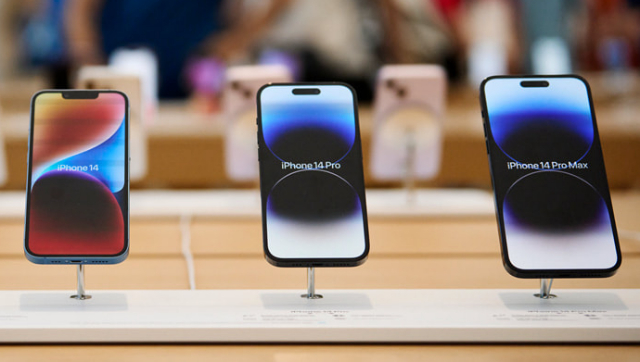According to reports on Tuesday, the prices of iPhones in Russia have experienced a significant decline of six to ten per cent at major retail chains. This drop in prices is attributed to an excess supply of Apple products through parallel imports, leading to a saturated market. News outlet Izvestia has revealed that the prices of certain smartphone models have decreased by up to 10 per cent. The surplus of iPhones in the market has compelled retailers to lower prices in order to manage the overstocking situation. This surplus has been fueled by numerous suppliers utilizing parallel import schemes, resulting in intensified competition. In fact, iPhones in Russia, are now at least 10-15 per cent cheaper than anywhere in the EU. It’s worth noting that this price reduction doesn’t solely apply to iPhones but extends to other Apple products as well. These products are officially categorized as “unavailable” for purchase or delivery in Russia by Apple. Apple exiting the Russian market Last March, Apple halted the direct sale of iPhones and other products in Russia, aligning with the trend of Western brands withdrawing from the market due to sanctions related to the situation in Ukraine. In order to meet the demand for Apple’s gadgets that are no longer officially available in Russia due to sanctions and limited supply, Russian retailers have resorted to parallel imports. Parallel imports involve the procurement of genuine products from other countries through alternative supply channels, without the explicit permission of the intellectual property owner. This practice has been legalized in Russia to address the absence of goods that Western companies have ceased delivering or producing in the country as a result of sanctions. By allowing parallel imports, Russia aims to ensure that its market still has access to these popular gadgets despite the restrictions imposed by Western companies. What are parallel imports? To mitigate the impact of punitive sanctions imposed by the US and the EU, due to the conflict in Ukraine, Moscow has implemented a “parallel imports” scheme to enable Russian consumers to continue accessing various foreign products. Under this mechanism, Russian companies are permitted to purchase goods from any company outside of Russia, including the country of origin, as long as the purchase is conducted legally. The Ministry of Industry and Trade has expanded the list of products covered by parallel imports. It now includes luxury brands such as Lancome, Giorgio Armani, and Yves Saint Laurent, as well as domestic goods brands like Wahl and Zanussi. Additionally, Japan’s Nintendo, motor oil brands, and agricultural equipment manufacturers have been added to the list. Do companies have any control over their supply chains? Despite top brands withdrawing from the Russian market, many of their products remain available due to the consolidation and expansion of parallel import mechanisms in the past year. This highlights the challenges faced by companies in controlling their supply chains when exiting a market. But is that the only option they have, if they really want their products not to be used in Russia? Or North Korea for that matter. Of course not. Tech products, especially network-related products can be geo-locked, i.e. locked up in a way that some of its core functionalities are not available in certain areas. Russian carriers can easily be rendered incompatible with smartphones and iPhones, should their manufacturers want to do so. Yes, there are ways to move around these restrictions, but implementing them on a large scale, certainly isn’t a piece of cake. Read all the Latest News , Trending News , Cricket News , Bollywood News , India News and Entertainment News here. Follow us on Facebook , Twitter and Instagram .
Know why dirt-cheap iPhones have flooded Russian market?
Mehul Reuben Das
• May 25, 2023, 14:04:11 IST
Despite the sanctions imposed on Russia, and the fact that most US and EU based tech companies have withdrawn from Russia, Apple products, especially iPhones are flooding the market, and being sold for dirt cheap rates, about 10-15% cheaper than the EU.
Advertisement
)
End of Article